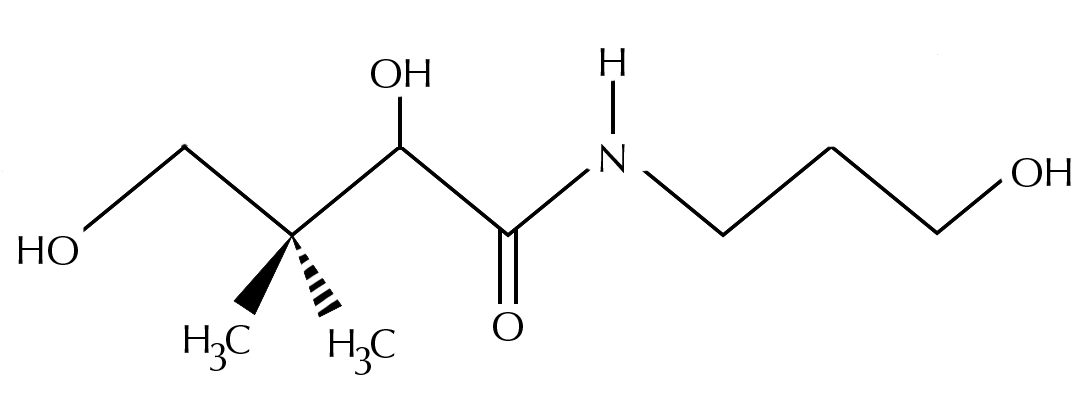What Is Panthenol?
Panthenol is a common ingredient that is found in a number of hair and skin products because of its ability to attract moisture and build healthier skin and hair. Panthenol is a provitamin of B5 which means that the body will convert it into vitamin B5. Panthenol is a great ingredient for moisturizers, shampoos and conditions as it binds and holds water in the skin. Hydrated skin helps to improve the plumpness and visible elasticity of the skin.
Panthenol is a humectant, which refers to the ability to hold and bind to water. Panthenol also has the added benefit of being an emollient which means that it helps to keep the water in the skin and hair, preventing it from being lost to the environment.
Panthenol is mainly used in moisturizers and hair conditioning products for its ability to give your skin that dewy appearance and add shine to the hair. Panthenol is also occasionally used in makeup products as well. In makeup formulations, it helps to add moisture but also helps to prime the skin and prevent slip.

Panthenol
the good: Panthenol helps to hydrate the skin, keeping moisture in. It also helps to calm the skin and promote wound healing.
the not so good: Panthenol is generally well tolerated by most skin types with a low likelihood of allergy.
Who is it for? All skin types except those that have an identified allergy to it.
Synergetic ingredients: Works well with most ingredients but especially well with humectants like hyaluronic acid and occlusive ingredients that help trap the moisture in the skin.
Keep an eye on: Look out for the concentration of panthenol in the product, most effective formulations will have around 5% panthenol in their product.
What Are Panthenol’s Benefits?
Moisture
Panethol’s main benefit is that it helps to draw water into the skin. Acting as a humectant, panthenol binds to water molecules and holds them in the skin. Hydrated skin is able to function properly and is responsible for dewy, plumped-looking skin. This makes panthenol great for skin types that endure harsh climates or air conditioning and heating as it is able to compensate for some of the transepidermal water loss that occurs in these environments. Transepidermal water loss refers to the loss of moisture that occurs from our skin to the environment. As we age our skin’s ability to minimize water loss reduces, resulting in dehydrated skin. Dehydrated skin is often responsible for that dullness and matte look.
Panthenol also helps to maintain a healthy skin barrier through its emollient action. The skin’s natural barrier consists of the first few layers of skin and the natural oils that the skin produces. The skin barrier protects the skin from water loss, bacteria, and allergens. Disruption of the skin barrier has been associated with skin conditions such as eczema, dermatitis, and psoriasis.
Wound healing
The benefits that panthenol provides the skin barrier may also help to support wound healing. Contrary to popular belief the skin heals better when it is soft and hydrated. This is why most surgeons recommend wet-wound healing rather than just letting the wound air or breathe. This is due to the ability of the sensitive new skin to be protected as it grows.
Similarly, panthenol may help to protect the new skin when healing. While this may be an added bonus for small cuts and marks for pimples it is not recommended for any open wound or large damaged area.
Anti-inflammatory
Panthenol may have anti-inflammatory benefits to the skin as well. There have been some studies that suggest that it may help reduce the appearance of UV-induced redness and may alleviate the itching associated with dermatitis.
What Are The Misconceptions About Panethnol?
There are a number of benefits to using products that contain panthenol, but there are several misconceptions about it because it’s used in a wide variety of applications. The most common misnomer is that it causes a heavy buildup in hair that may contribute to dandruff and oily hair. However, hair care experts dispute this rumor and say that the elements of panthenol could not cause this problem.
Another misconception is that because this ingredient binds so completely to hair that it’s hard to wash out, even with hot water. Panthenol does bind to the hair or skin, but since it has no sticky or waxy properties, it will likely wash away easily, depending on its concentration in the formulation. If you have any concerns about using panthenol, contact your specialist.
Is Panthenol Safe?
Panthenol is considered to be safe for its indicated uses. Given that panthenol is generally well tolerated for most skin types and rarely causes irritation or sensitivity it is safe for use in most formulations.
The Cosmetic Ingredient Review Expert Panel has reviewed the safety of panethol and panethoic acid. The Cosmetic Ingredient Review Expert Panel is a group responsible for independent review of safety and efficacy of skincare and cosmetic ingredients. Based on the available data, the Expert Panel has concluded that it is safe in its current uses and concentrations.
References:
Camargo, F, Gaspar, L & Maia Campos, P, 2011. ‘Skin moisturizing effects of panethnol-based formulations’, Journal of Cosmetic Science, vol. 62, is. 4, pp. 361-370.
Cosmetic Ingredient Review, 1987. ‘Final Report on the Safety Assessment of Panthenol and Pantothenic Acid’, Journal of the American College of Toxicology, vol. 6, no.1.
Stettler, H, et al. 2017. ‘A new topical panthenol-containing emollient: skin-moisturizing effect following single and prolonged usage in healthy adults, and tolerability in healthy infants’, Journal of Dermatological Treatment, vol. 28, is. 3.







